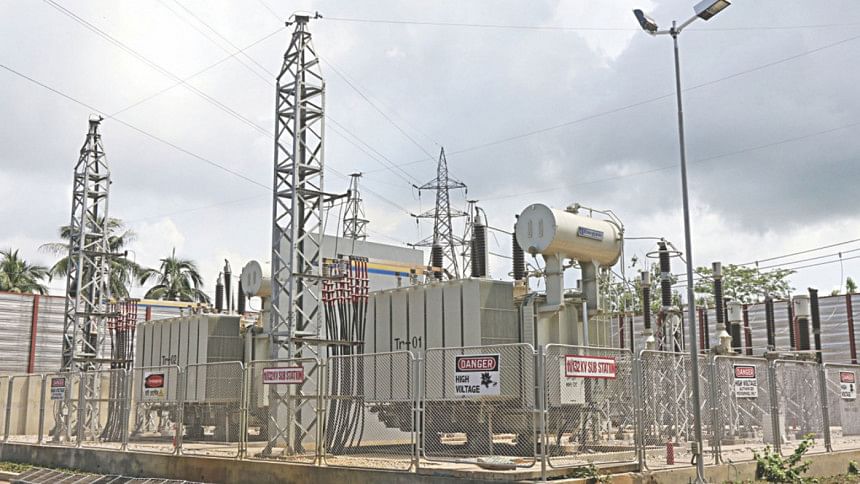Power Outage: Only one-third plants operating at full capacity

Of the 153 power plants in the country, 49 are operating at capacity, which explains the ongoing power outages amid the searing summer heat.
At least 53 of the remaining 104 plants have been shut for maintenance or for being out of fuel due to the dollar crunch. The 53 have a combined capacity of 4,930 megawatts, shows data from the Power Grid Company of Bangladesh.
The other 51 plants, which have the capacity to produce 7,855MW, are generating 3,568MW because they are short on fuel.

Meanwhile, people and industries are left without power for four to five hours in the capital and eight to 10 hours in rural areas amid the unforgiving summer.
Yesterday, the temperature in Dinajpur and Saidpur reached 40.5 degrees Celsius, and in Dhaka 38.7 degrees Celsius. The Bangladesh Meteorological Department warned that the heatwave might continue for a few days.
As of 9:00pm yesterday, the average load-shedding was 2,636MW per hour against a demand of 15,800MW. The highest generation per hour was 13,763MW.
Power generation was dealt a setback after Payra 1,320MW Thermal Power Plant shut down on Monday amid coal shortage.
The Rampal power plant, another major generator, has been operating below capacity since it resumed operation on May 16 after three weeks of closure due to a coal shortage.
It is now producing just 300MW to 350MW a day against a capacity of 660MW.
"We have been told to keep the power plant operational as long as possible with the last shipment of coal," said Anwarul Azim, deputy general manager at Bangladesh-India Friendship Power Company, which operates the Rampal plant.
The letters of credit for coal import for this month have been opened, so there would not be any problem for now.
"But if there is a delay in opening LCs again, there will be a problem," he added.
Among the five coal-based power plants, only the Adani power plant in India's Jharkhand is supplying at its installed capacity of 748MW.
The Barapukuria power station and Barishal 307MW plant are producing at half their capacities.
Due to the heatwave, many furnace oil-based plants are facing issues in generating power, according to officials of the Bangladesh Power Development Board.
Independent power producers (IPPs) maintain that the electricity situation will not improve unless the government takes extraordinary measures.
"We went through the same situation before Ramadan, when the power demand was similar," said an independent power producer on the condition of anonymity.
Due to record power generation during Ramadan, there were no major incidents of power outage then.
It was because of the government's initiatives to ensure the availability of necessary dollars and pay the dues of private companies, said the producer, adding that the same measures are necessary now.
"We are not able to import furnace oil as per our demand as the banks are not opening LCs due to the dollar shortage. Besides, the government owes huge sums to many plants," the power producer added.
As of March, the IPPs were owed Tk 18,000 crore, according to the Bangladesh Independent Power Producers' Association.
The energy sector should get the same priority as the food and agricultural sectors, said M Shamsul Alam, dean of Daffodil International University's faculty of engineering.
"To ensure food security, the government gives so many incentives. But here, the situation is the opposite. The government uses this sector to generate revenue only. This attitude is the main reason behind the ongoing crisis," he added.
There is no fuel crisis in the international market, according to M Tamim, a professor of petroleum and mineral resources engineering at BUET.
"The main crisis is the dollar shortage," he said.
As of May 31, gross foreign reserves, as per the central bank's methodology, stood at $29.9 billion, which is enough to cover import bills for about four months.

 For all latest news, follow The Daily Star's Google News channel.
For all latest news, follow The Daily Star's Google News channel. 









Comments